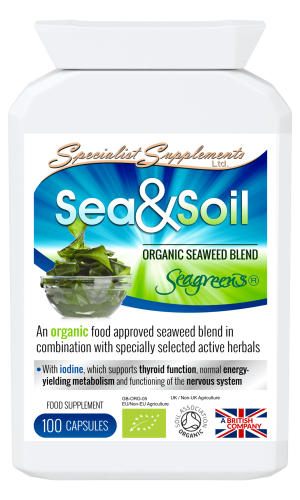Vitamin C and Health
by Admin
Posted on 31-07-2023 09:52 PM

1139 results
as good for internal health as it is for your external complexion, vitamin c, or ascorbic acid, supplies vital benefits for the entire body. In skin care, vitamin c is used for two main purposes: collagen production and antioxidant protection. Collagen is the main connective tissue in the skin. It is what makes the skin flexible. As we age, our bodies' ability to produce collagen declines, leading to thin, weak skin. Topical vitamin c revitalizes the skin's flexibility, creating a youthful appearance. Antioxidants play an important anti-aging role as well, protecting against damaging free radicals that attack healthy skin cells and speed up the aging process.
 https://f004.backblazeb2.com/file/pkrkkl/herbalcolonicscomplex/colonics/The-10-Best-Detox-Cleanses-Products-of-2023-According-to-a-Nutritionist.html
https://f004.backblazeb2.com/file/pkrkkl/herbalcolonicscomplex/colonics/The-10-Best-Detox-Cleanses-Products-of-2023-According-to-a-Nutritionist.html
Rda: the recommended dietary allowance for adults 19 years and older is 90 mg daily for men and 75 mg for women. For pregnancy and lactation, the amount increases to 85 mg and 120 mg daily, respectively. Smoking can deplete vitamin c levels in the body, so an additional 35 mg beyond the rda is suggested for smokers. Ul: the tolerable upper intake level is the maximum daily intake unlikely to cause harmful effects on health. The ul for vitamin c is 2000 mg daily; taking beyond this amount may promote gastrointestinal distress and diarrhea. Only in specific scenarios, such as under medical supervision or in controlled clinical trials, amounts higher than the ul are sometimes used.
Medically reviewed by atli arnarson bsc, phd — by ryan raman, ms, rd on february 19, 2020 vitamin c has many health benefits. For example, it helps strengthen our immune system and may help lower blood pressure. It is found in many fruits and vegetables. Vitamin c is an essential vitamin, meaning your body can’t produce it. Yet, it has many roles and has been linked to impressive health benefits. It’s water-soluble and found in many fruits and vegetables, including oranges, strawberries, kiwi fruit, bell peppers, broccoli, kale, and spinach. The recommended daily intake for vitamin c is 75 mg for women and 90 mg for men (.
Vitamin C absorption and megadosing
Vitamin c enhances the absorption of iron , and some healthcare professionals recommend taking vitamin c supplements with iron tablets to improve absorption in people with iron deficiency anemia. Looked at 432 people who took iron supplements for iron deficiency anemia.
 Some took vitamin c with their iron supplement, and others did not. However, both groups saw similar increases in iron, suggesting that vitamin c supplementation is unnecessary for this purpose.
Some took vitamin c with their iron supplement, and others did not. However, both groups saw similar increases in iron, suggesting that vitamin c supplementation is unnecessary for this purpose.
Possible interactions include: aluminum. Taking vitamin c can increase your absorption of aluminum from medications containing aluminum, such as phosphate binders. This can be harmful for people with kidney problems. Chemotherapy. There is concern that use of antioxidants, such as vitamin c, during chemotherapy might reduce the effect of chemotherapy drugs. Estrogen. Taking vitamin c with oral contraceptives or hormone replacement therapy might increase your estrogen levels. Protease inhibitors. Oral use of vitamin c might reduce the effect of these antiviral drugs. Statins and niacin. When taken with vitamin c, the effects of niacin and statins, which might benefit people with high cholesterol, could be reduced.
Vitamin c is a powerful antioxidant. Dr. Sherry ross, a gynaecologist and women’s health expert at providence saint john’s health center in santa monica, california, explains that it helps protect cells from damage caused by free radicals that we are exposed to in the environment such as air pollution, cigarette smoke and ultraviolet light from the sun. Ascorbic acid is also needed to regenerate other antioxidants within the body, including vitamin e. At the same time, scientists are still examining whether vitamin c, by limiting the damaging effects of free radicals, might help prevent or delay the development of certain cancers, cardiovascular disease, and other diseases rooted in high levels of oxidative stress.
Adverse affects may occur between vitamin c and anticoagulant drugs such as warfarin (coumadin), decreasing their action. Nicotine products, oral contraceptives/estrogens, tetracyclines, barbiturates, and aspirin may decrease levels of vitamin c. Vitamin c may increase absorption of iron and lutein. Although some evidence suggests that large doses of supplemental vitamin c may interfere with the absorption and metabolism of vitamin b12 found in food, other studies have shown no such effects. Updated by: andrew weil, m. D. , and brian becker, m. D. , on oct. 29th, 2012 sources: ods. Od. Nih. Gov/factsheets/vitaminc-healthprofessional/ nlm. Nih. Gov/medlineplus/ency/article/002404. Htm umm. Edu/health/medical/altmed/supplement/vitamin-c-ascorbic-acid lpi. Oregonstate. Edu/mic/micronutrients-health/skin-health/nutrient-index/vitamin-c reviewed by benjamin s. Gonzalez, m. D. , may, 2016.